Hanoi’s architecture mirrors the city’s – and the country’s – checkered history. Chinese influence, French inspiration, subsidy phase austerity and modern practicalities have resulted in a compelling jumble of mismatched dwellings. One compelling way to absorb the capital’s architecture is through its lovingly converted cafes. Here are five you simply can’t miss.
Loading T
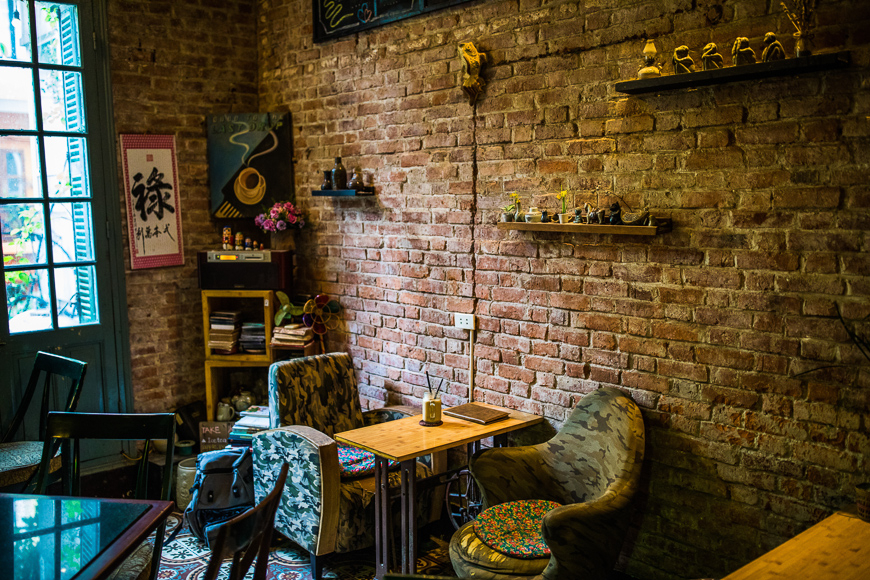
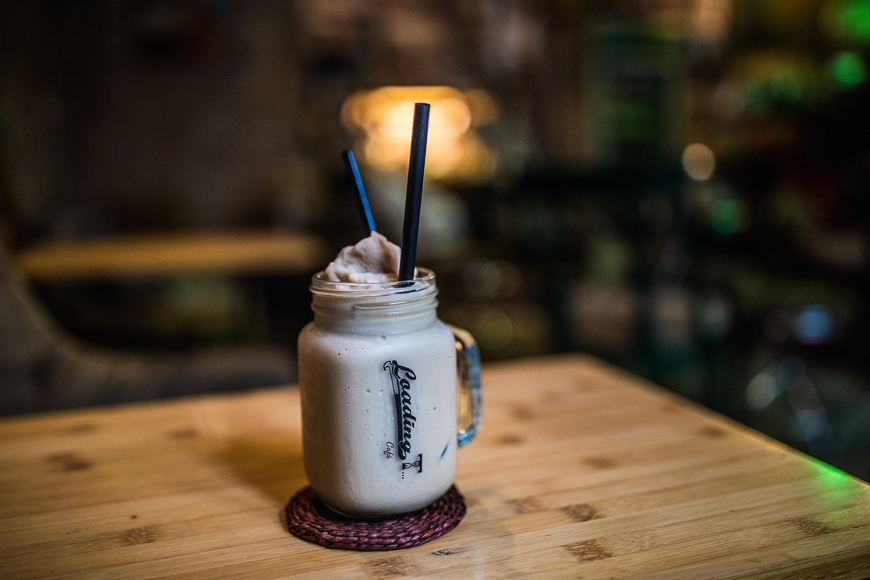
Loading T is tucked inside a handsome, century-old colonial villa in the heart of the Old Quarter. The house is an appealing but crumbling example of Indochina-era architecture, with olive-green shutters, rounded balconies and patterned tile flooring. The building was originally built in 1932 and housed just one wealthy family, but was appropriated in the 1950s and divided into 16 separate dwellings. Loading T occupies one of these divisions but many of the others remain as family homes.
TIP: Loading T owners Son and Trang mix their coffee with cinnamon, adding an unusual and delicious aftertaste to their blend. They also make a mean egg coffee.
Hanoi House Cafe
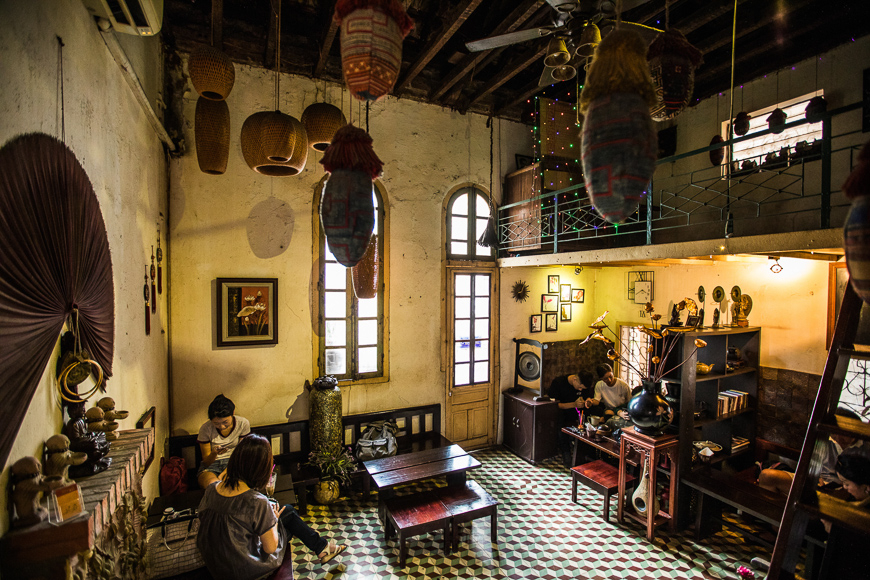
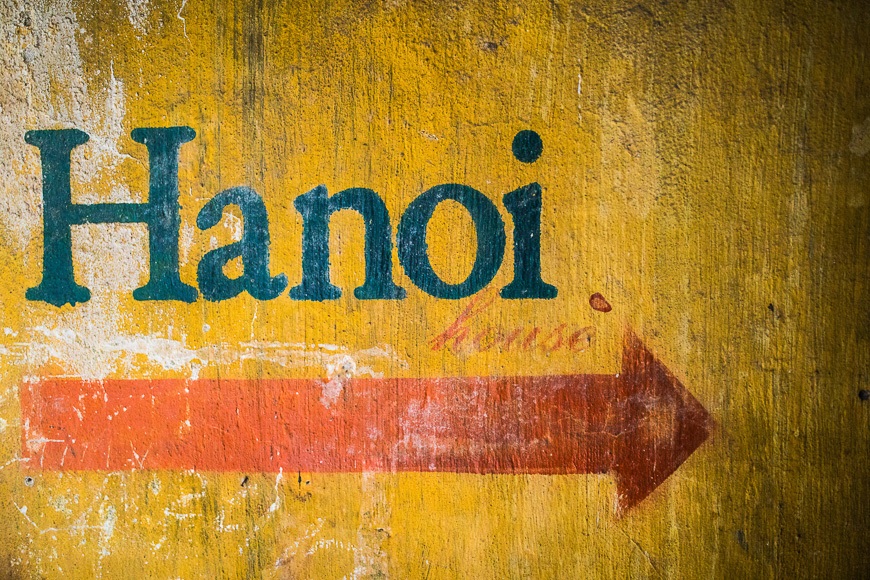
Another hidden architectural gem, Hanoi House is a one-room café exemplifying French-style housing from the early 20th century. The ceiling is high to keep the space cool throughout the summer, and the now-unused fireplace warmed the house in the winter. Mesmerizing art deco tiles blanket the floor while two tall windows allow plenty of natural light. One window has been repurposed as a door, giving access to a makeshift balcony. This balcony is the best seat in the house, as you have front-row views of St. Peter’s Cathedral.
TIP: The Hanoi House Cafe is easy to spot but difficult to access. Head down the alleyway to the left of the café and climb the steps on the right.
Bancông
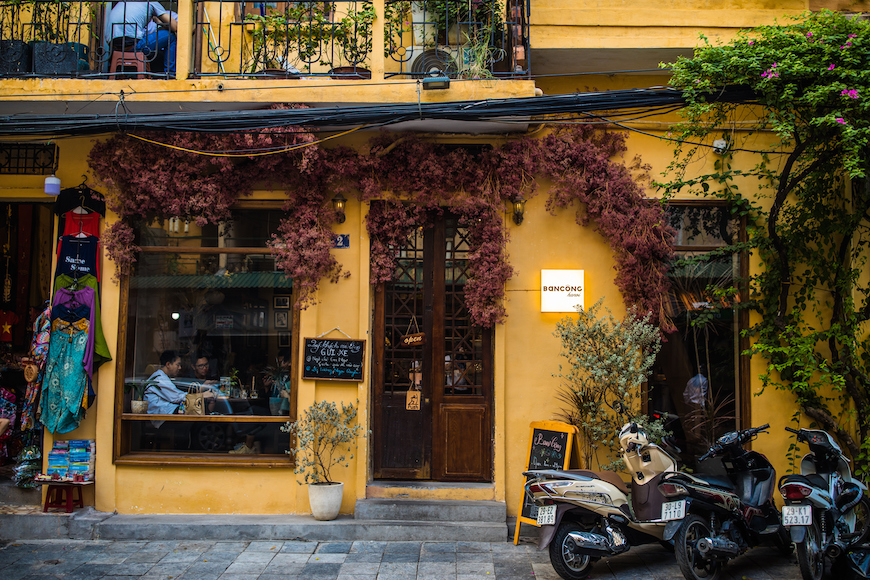
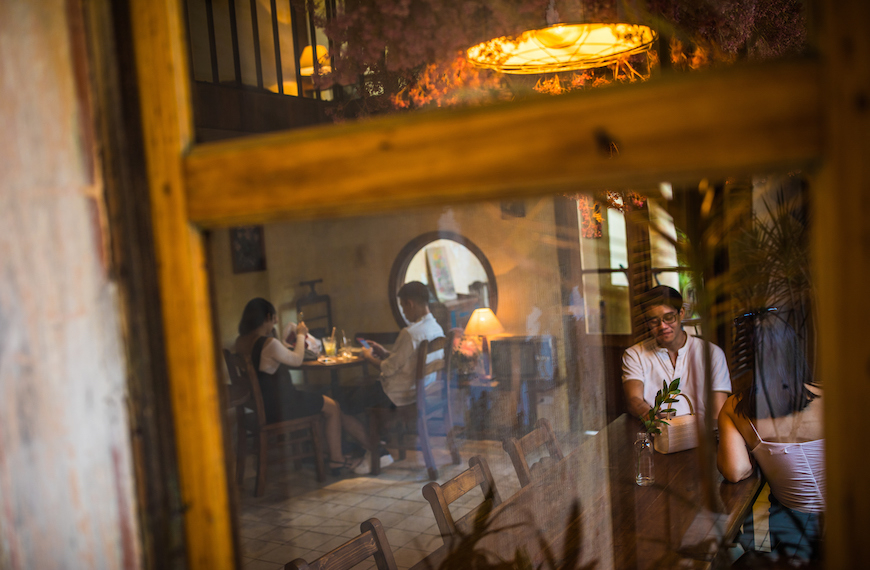
Art Deco architecture took off in the 1930s and 40s, though you’ll find most examples in the French Quarter south of Hoan Kiem Lake. That’s what makes Bancong, a three-floor café nestled in the Old Quarter, so unique. Though records have vanished, the house was probably built by a high-ranking Vietnamese official just before the Second World War. Unlike most buildings in Hanoi’s trading quarter, this large corner house was built only as a residence without any commercial purpose.
Manzi
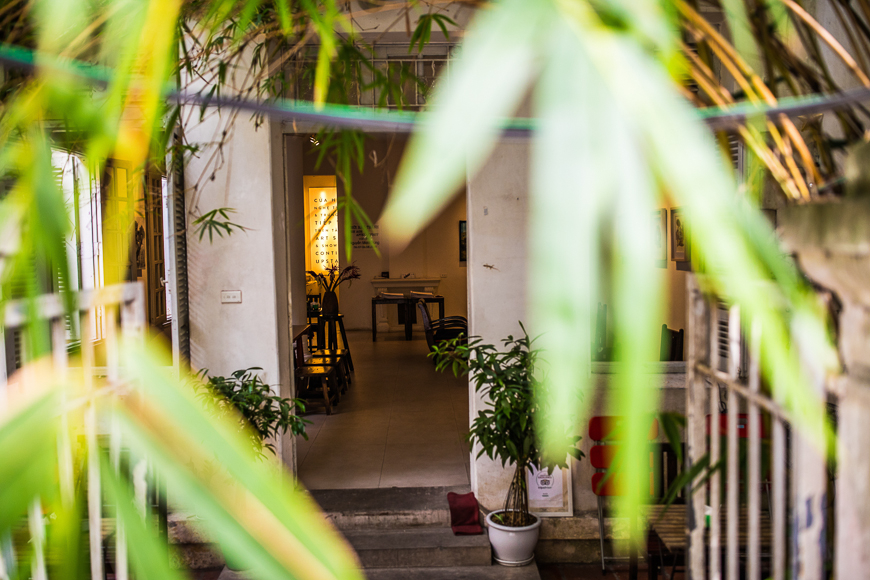
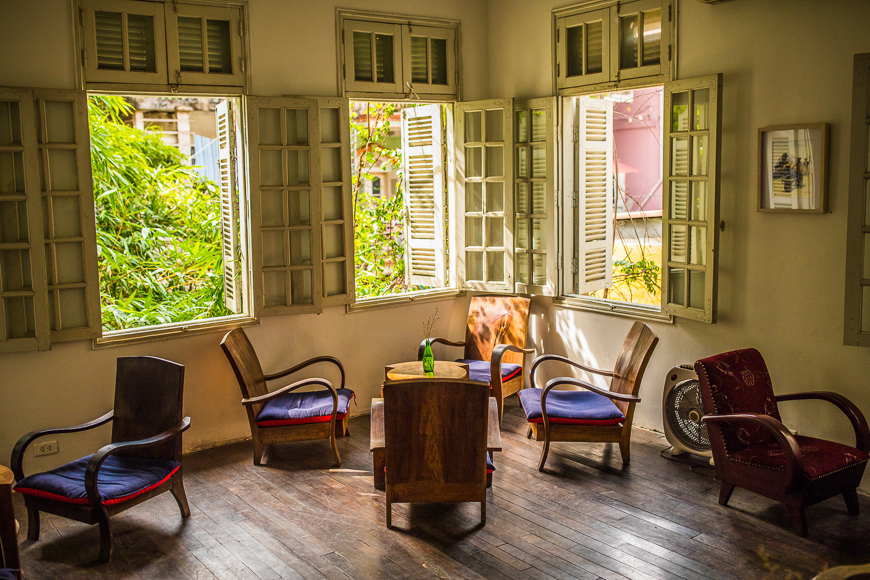
Manzi is a contemporary art gallery-cum-cafe with rotating exhibitions. The building is a rare example of a colonial-era detached house that’s maintained its architectural integrity. The house stands almost exactly as it would have done a century ago, though the owners have tastefully white-washed the interior so visitors can focus on the exhibitions. The upper level still has the original floorboards in the front-facing room and charming French windows that bathe the space in natural light. You’ll find more fine colonial buildings on the same street.
TIP: Looking for something special to take home? Manzi’s upper floor showcases pieces from Vietnam’s up-and-coming contemporary artists.
Cafe Duy Tri
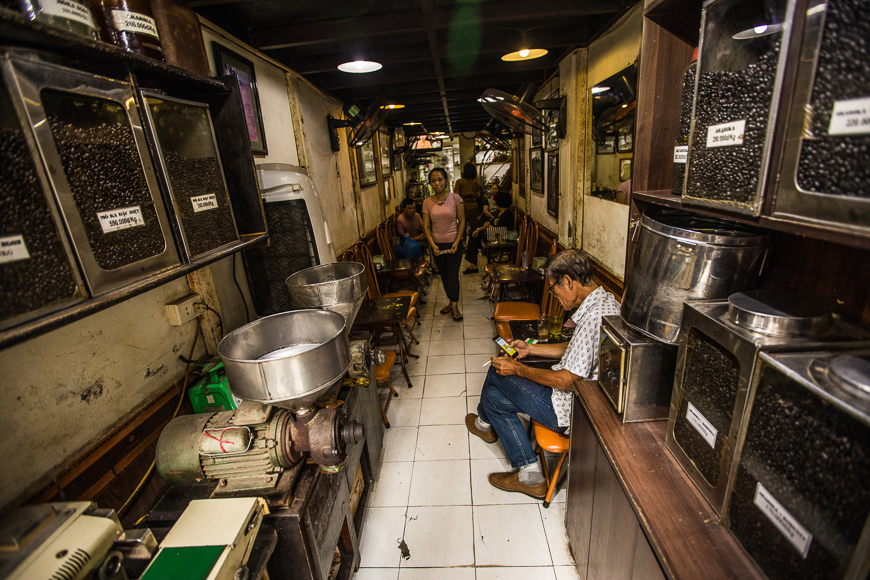
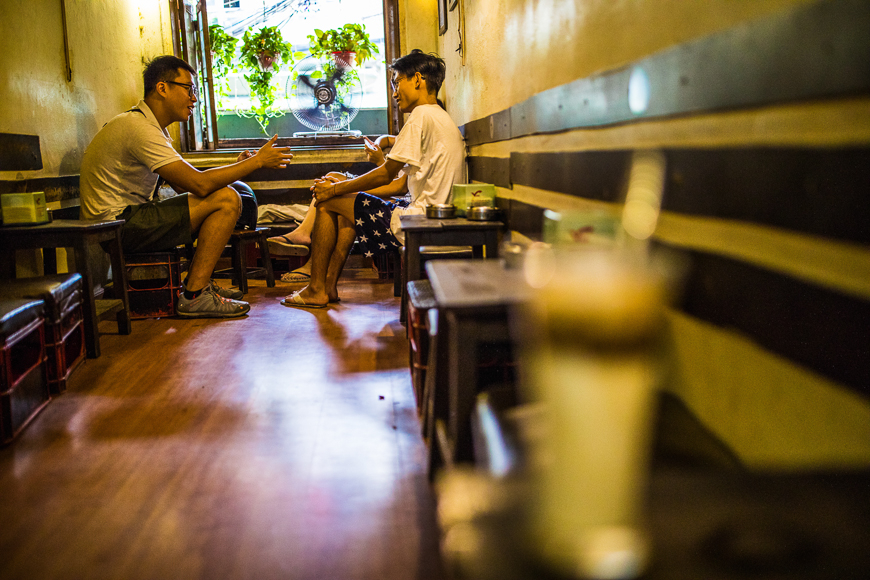
As Vietnam’s cities grew after the war, it became more difficult to allocate desirable land to members of the growing urban population. Many people resisted living down small alleys as they wanted access to the main road for commercial reasons. The solution was the so-called “tube house” which you’ll see all over the capital. These houses have very narrow entrances – sometimes just two or three metres-wide – but they go back far from the road.
Duy Tri is a good example of Hanoi’s tube houses. You can barely walk through the entrance without brushing somebody’s knees. The business has existed since the 1930s, though it moved around several locations before finding its current home in West Lake. The café serves excellent traditional Vietnamese coffee and homemade yoghurt.